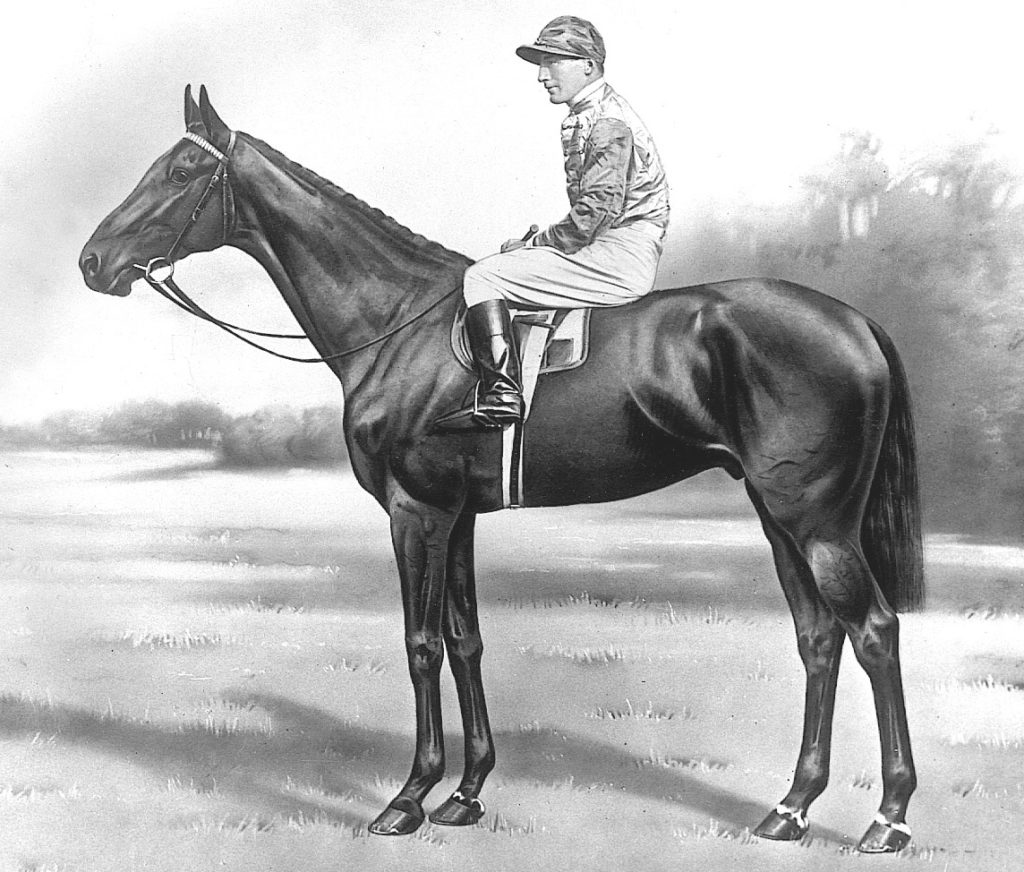31 July 1917 – The latest ever Epsom Derby day
Although, due to the Covid-19 virus, this year’s Derby was put back to 4 July, the latest the great race was run was on 31 July 1917, and this, because of a national emergency.
Despite the First World War still raging, racing in Britain continued, albeit within limitations. However, when the First Spring Meeting at Newmarket, which included both Guineas races, ended on Friday 4 May. The Government then banned all racing in Britain because not only was the war with Germany a bitter struggle, but there was a national food crisis and Parliament had questioned the large quantities of oats required to feed racehorses. The total ban on racing was fought by the Jockey Club and the Thoroughbred Breeders Association, and on 4 July, the Board of Trade informed the Jockey Club that the Cabinet had agreed that racing could be resumed with a limited fixture list until the end of the season. Racing recommenced on 17 July at Newmarket and the New Derby was run there on the 31 July.
The winner this year, Gay Crusader, was bred and owned by Alfred Cox, who without the benefit of hindsight, raced under the name of ‘Mr Fairie’.
Sired by the Eclipse Stakes and St Leger winner Bayardo, Gay Crusader was the first foal from Gay Laura, a Maiden winner by Beppo, who later bred six winners.

Gay Crusader with Steve Donoghue up
Trained by Alec Taylor at Manton, Gay Crusader ran twice at Newmarket as a juvenile, running unplaced in the Clearwell Stakes and winning the Criterion Stakes.
The following spring, Gay Crusader reappeared in the Column Produce Stakes, to finish second to his Clearwell conqueror Coq d’Or, this time, beaten only three-quarters of a length whilst conceding 11lb. This considerable improvement led him to the Two Thousand Guineas, for which he started 9-4 favourite, beating his stable-companion, Lord Astor’s Magpie, by a head. Steve Donoghue, champion Jockey of his day, had cleverly kept Gay Crusader so close to Magpie that the latter’s jockey Otto Madden was unable to use his whip hand.
Before the Derby, Lord Astor sold Magpie to go to Australia, leaving Gay Crusader the undisputed Derby favourite. Twelve runners lined up and, after a good start, Invincible led from Dark Legend and Dansellon. After five furlongs Dark Legend took over from Invincible, with Gay Crusader just behind the leaders. Steve Donoghue then quickly moved Gay Crusader into the lead and going on, won comfortably by four lengths from Dansellon, with Dark Legend a further head away third. Diadem, the second favourite, having previously won the One Thousand Guineas, could finish only fifth. However, two days later, she finished second to Sunny Jane in the New Oaks.
Gay Crusader now reigned supreme, and went on to win the September Stakes (St Leger substitute), so becoming the 12th winner of the Triple-Crown. This he followed with the Newmarket Gold Cup (2 1/2 miles), the Champion Stakes, the Lowther Stakes and finally the Limekiln Stakes.
Gay Crusader was kept in training as a four-year-old as his owner wanted to win a second Gold Cup. However, after a superb home trial he developed tendon trouble and was retired to Manton House Stud at a fee of 400 guineas. At this time, Alfred Cox turned down an offer of £100,000 for him, worth £2.6 million today. Without being prodigious, Gay Crusader sired a number of decent horses, including Hot Night (second in the 1927 Derby and St Leger), Hurstwood, third in the Derby and Loika (ch.f. 1926, dam of Djebel, winner of the 1940 English and French Two Thousand Guineas).
Gay Crusadere died on 14 September 1932. Steve Donoghue, who partnered the winners of 14 Classic races, paid Gay Crusader a huge compliment by saying he was the best horse he ever rode.